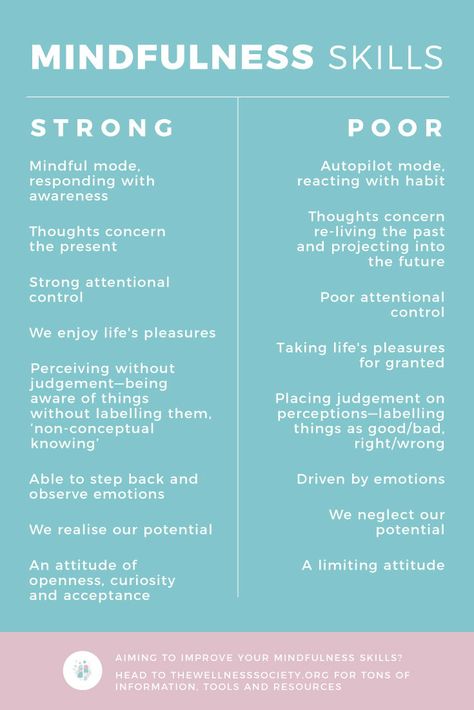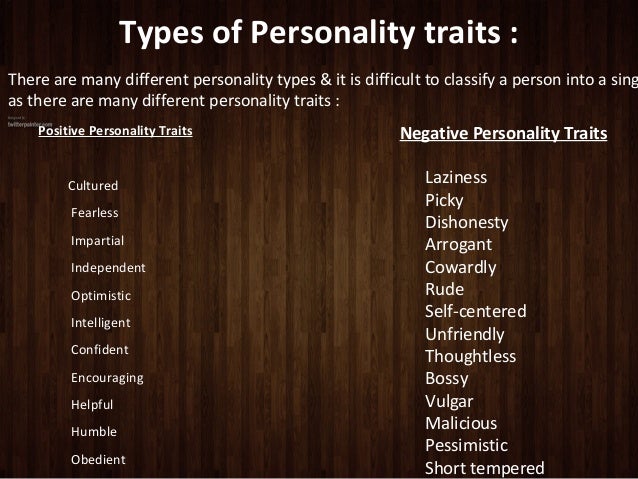Grow out of autism
Can You Grow Out of Autism?
Neurological development changes with age for everyone, even autistic folks. But that doesn’t mean you can grow out of autism.
Autism spectrum disorder (ASD) is a neurodevelopmental condition that may cause difficulty with communication in social settings and lead to repetitive behaviors.
Conversations around autism often are often centered on autistic children. Many people may question the prevalence of autism in adults and whether the diagnosis can change over time.
Although how autism may present in an individual can change, an individual cannot grow out of autism.
“ASD is not an on and off switch,” says Nicole Tetreault, PhD, a neuroscientist and author in Los Angeles. “It’s an identification meant to help people get the proper supports and guides in place so they thrive and live in their magic.”
A note on neurodivergent people
There is no cure for autism, and many people in the autistic community don’t feel the need for one. Instead, they recognize autism as a neurotype rather than a disability or condition that needs to be cured.
Neurodivergent folks, including autistic people, may communicate in diverse ways. For instance, avoiding eye contact and fidgeting may help them concentrate better or feel more comfortable in conversation.
Many autistic folks consider ASD an aspect of their personality rather than something to improve or fix. This is connected to the idea of using language like neurodivergent or neurodiverse, which conveys a variance in neurological processing without placing any values or judgment.
Everyone — including neurotypical people — grows and develops at different rates throughout their lives. And because autism exists on a spectrum, one person’s behavior can’t be compared with another’s.
“Humans develop asynchronously, [meaning] that regions of the brain grow at varying rates and time points and develop uniquely,” Tetreault says.
Yet some autistic folks may develop different coping skills as they get older.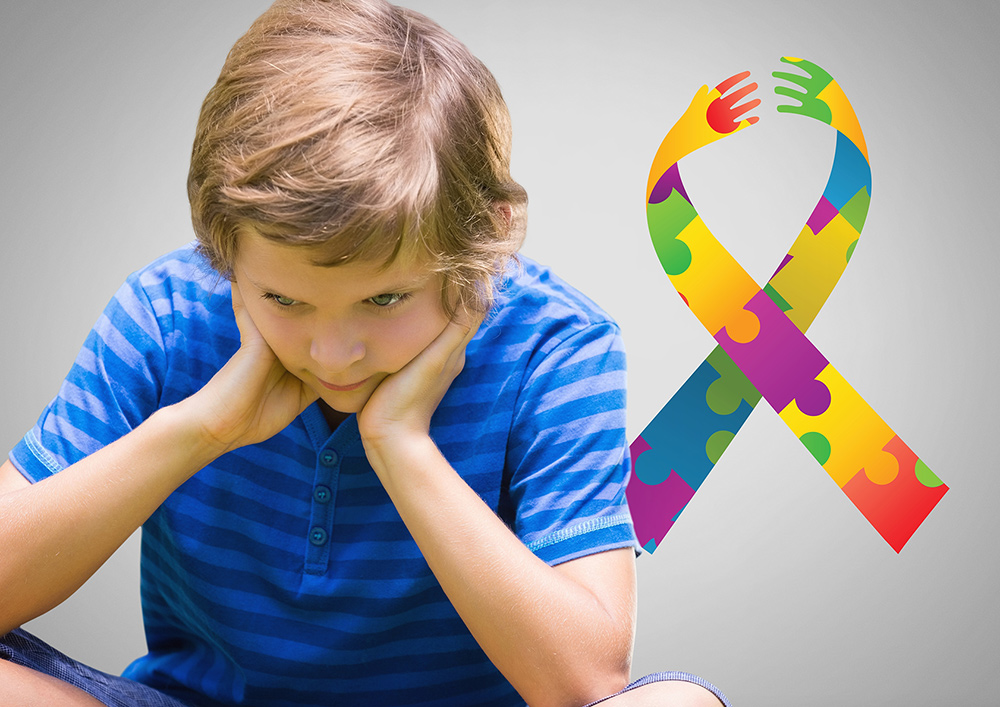 For example, stimming preferences may change as an autistic person finds different ways to self-soothe.
For example, stimming preferences may change as an autistic person finds different ways to self-soothe.
Diane Gould, a licensed clinical social worker and a therapist in Chicago, says that autistic individuals can become more adaptable, especially when they get the support they need.
She adds that the inverse may also be true — people with ASD may become more rigid, anxious, and less willing to engage with the world if they don’t get the support and accommodations they need to thrive.
Questioning whether an autistic person will “grow out of” their disorder is potentially harmful and fails to acknowledge autism as part of their identity.
Autistic folks shouldn’t have to feel like they need to change, and placing the expectation on them could suppress a fundamental aspect of their personality.
As a result, some autistic folks may mask their identity to please others. And in doing so, they may appear on the outside to have changed or “grown out” of their disorder.
“This takes a great toll on them and sometimes brings them to the point where they can’t function,” Gould says. “We need to be careful not to reinforce masking and instead learn to respect autistic people for who they are.”
Accepting autism as part of a person’s identity means supporting their unique strengths rather than aiming to change their behavior.
“The identification of autism can be misunderstood where people think of it as a deficit-based or that there is something to fix,” Tetreault says. “There is a unique individual — and the individual is beyond the label.”
She adds that encouraging autistic children to lean into their natural passions and interests can benefit them in the long run. And using language like “neurodivergent” helps an autistic person feel understood rather than ostracized.
Misdiagnoses among autistic adults may occur if external symptoms are less visible. In some cases, an autistic individual may be misdiagnosed with an alternate condition.
“Many girls and women have been told they have anxiety and ADHD when they are autistic,” Gould says. “Many boys and some girls are told that they have ADHD and (oppositional defiance disorder) ODD and can’t be autistic because they make eye contact, are imaginative, and socially motivated.”
As a result of being misdiagnosed, folks who may be on the autism spectrum cannot receive the support and care they need.
“People should not be diagnosed quickly from the DSM-5 — that could lead to an incorrect diagnosis that may be proved wrong later in life,” Gould says.
The expectation that someone will “grow out of autism” can be harmful and cause an autistic person to mask or hide who they truly are.
An accurate autism diagnosis will not change or disappear over time. But as neurodivergent folks continue to age and develop, how they interact with the world does, too — just like neurotypical individuals.
Adequate support systems and accommodations can aid in the healthy development and exploration of an autistic person’s identity.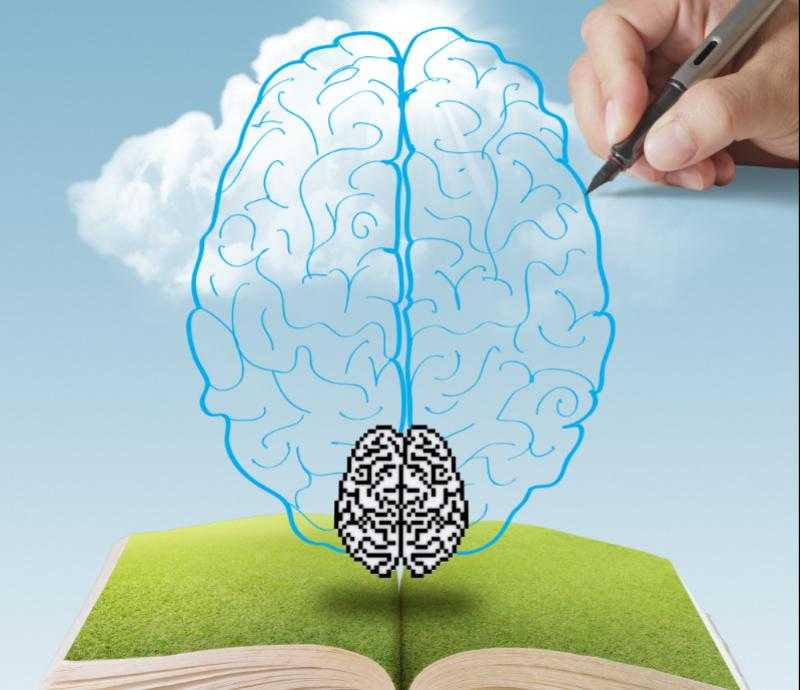 And specialized therapies can help autistic folks learn more about their coping skills, such as working with their stims or addressing comorbid mental health disorders.
And specialized therapies can help autistic folks learn more about their coping skills, such as working with their stims or addressing comorbid mental health disorders.
Is it possible for children to 'grow out' of autism?...
"Children can 'grow out of' autism, psychologists say, challenging the established view that autism is a permanent, incurable condition," The Independent has reported.
The story is based on a study that documented a group of individuals with an early history of diagnosed autism. These individuals no longer met the criteria for this diagnosis in later life and seemed to function normally.
The study compared the functioning of this group with a group consisting of people with high functioning autism (often referred to as Asperger syndrome) and a second group of people who were developing or had developed "normally".
The study found that people in the first group, who had lost the autism diagnosis, showed language, face recognition, communication and social interaction skills no different from the "normal" group and had no remaining autistic symptoms.
While this study suggests that some children with a diagnosis of autism can go on to function normally, although whether they genuinely "grow out" of autism is uncertain. It is possible that some of these children were misdiagnosed initially, or that intensive therapy helped this group ‘mask’ their underlying condition.
And while this study suggests that there may be individual cases where symptoms of autism can be overcome, it does not provide any evidence about the most effective way this can be done.
As the authors say, more research is needed to explain their findings and to explore how children with autism can be best helped to develop their potential.
Where did the story come from?
The study was carried out by researchers from the University of Connecticut, Queen’s University Canada, The Children’s Hospital of Philadelphia, Hartford Hospital and the Child Mind Institute. It was funded by the US National Institutes for Health and was published in the peer-reviewed Journal of Child Psychology and Psychiatry.
It was covered fairly in the papers, with BBC News and The Daily Telegraph including comments from an expert in the UK. However, the repeated claim in the headlines that children may "grow out" of autism is misleading. The direct effects of ageing on autism symptoms were not studied.
It is uncertain whether children who did not receive treatment for autism would still have experienced an improvement in symptoms as they grew older.
What kind of research was this?
This was an observational study that documented the cognitive, language and social functioning of a group of individuals who had been diagnosed with autism at a young age but who no longer had an autism diagnosis. It is part of a larger ongoing study looking in detail at these individuals.
In this study, the researchers compared the functioning of these children to two other groups:
- one group of individuals with high functioning autism
- one group of individuals with "typical development"
They wanted to find out if the first group still had some residual symptoms of autism or if they genuinely fell within the normal range of functioning.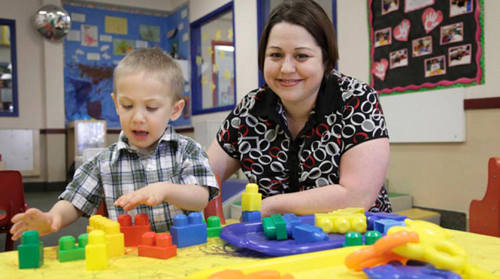
The authors say that although autistic spectrum disorders (ASDs), which also include Asperger syndrome and pervasive developmental disorder, are generally regarded as lifelong, some research suggests that a small number of children with an early history of autism do not meet the criteria for this diagnosis in later years.
Although this could be due to an initial misdiagnosis, some studies suggest that with the right intervention, some individuals can achieve an "optimal outcome" (OO), no longer meeting the criteria for diagnosis of ASD, and losing all symptoms.
Studying individuals who have "lost the diagnosis", the researchers say, has important implications for understanding:
- the neurobiology of autism – how autism affects the brain and how the brain affects autism
- the impact of therapy on functioning
- the mechanisms underlying improvement
What did the research involve?
The researchers recruited:
- 34 individuals with a history of ASD and OO, which is defined as no longer having a diagnosis of autism and losing all symptoms
- 44 high functioning individuals with a current ASD diagnosis
- 34 people who had typical development
Their ages ranged from 8 to nearly 22 years. The groups were matched on age, gender and non-verbal IQ.
The groups were matched on age, gender and non-verbal IQ.
All potential participants were carefully screened by telephone interviews with parents, to ensure they met the criteria for inclusion. After screening by telephone, participants were evaluated by specialist clinicians over the course of two or three testing sessions carried out at university or at home. Further parent interviews were also conducted.
The OO individuals that were included:
- had a documented diagnosis of ASD that had been carefully reviewed by an expert
- had a current evaluation by a clinician that ASD was not present
- had high scores on one of the scales used to measure and evaluate symptoms and signs of autism in the areas of communication and socialisation, as reported by parents
- were in normal education, with no special assistance to address autism deficits
The high functioning autism individuals needed:
- to meet diagnostic guidelines for high functioning autism
The "typical development" individuals:
- did not meet criteria for ASD at any point in their development, according to parental reports
- did not have a first degree relative with an ASD diagnosis
- did not meet current diagnostic guidelines for ASD
Participants performed a series of well-established tests to measure their language function, facial recognition, social interactions, communication skills and autism symptoms.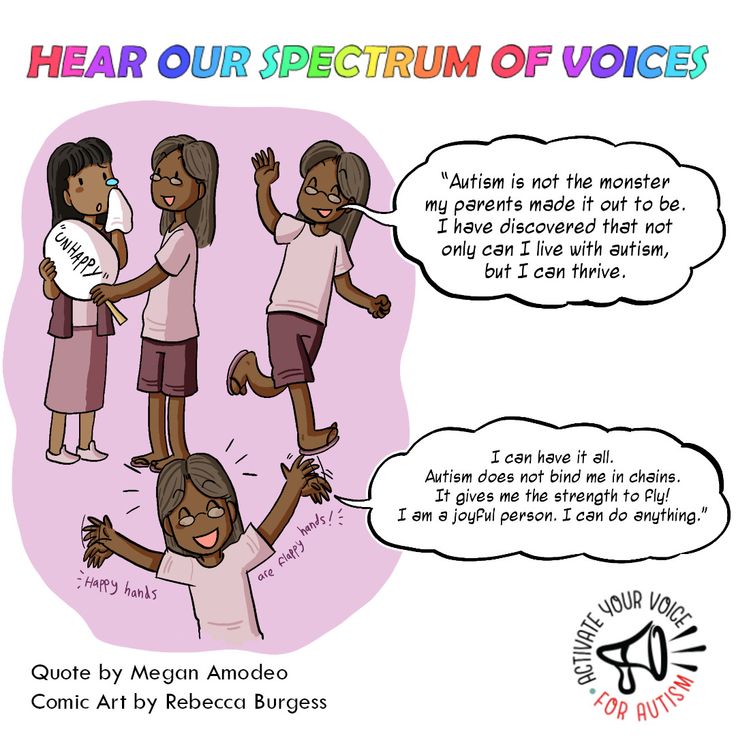
What were the basic results?
Researchers found that:
- The average scores for socialisation, communication, face recognition and most language tests did not differ between the OO group and the typical development group, although three OO individuals showed below-average scores on face recognition.
- Early in their development, the OO group displayed milder symptoms than the HFA group in the area of social interaction but had equally severe difficulties with communication and repetitive behaviours.
How did the researchers interpret the results?
The researchers say the results clearly demonstrate the existence of a group of individuals with an early history of ASD who no longer meet the criteria for this condition. Their communication and social skills are on a par with individuals of typical development, matched for IQ, sex and age.
They say a small number of this group had some weakness on a face recognition test, but not beyond what might be expected by chance.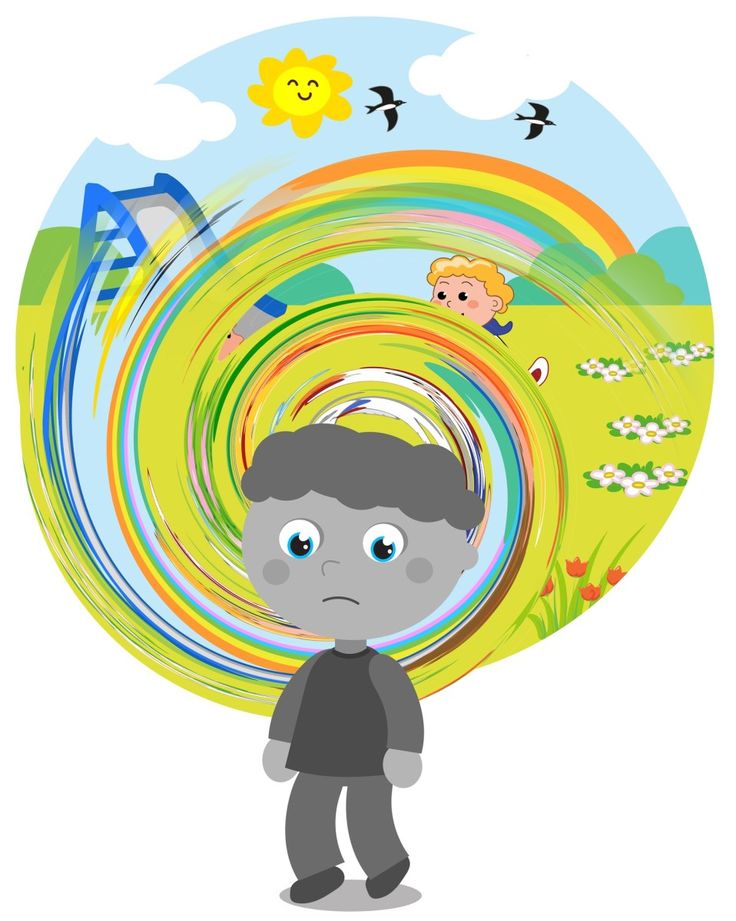
As this is the first part of a wider study, the researchers say that further tests will examine possible deficits in more subtle aspects of social interaction or cognition, in the OO group.
These first results, they say, confirm the possibility that some individuals initially diagnosed with autism can have “optimal outcomes” [ie, their symptoms improve] and function within normal limits.
Conclusion
This interesting study is part of a larger ongoing study looking in detail at individuals with an early history of autism who no longer meet criteria for a diagnosis. It raises several, as yet, unanswered questions. As the authors point out:
- The individuals in the OO group had above average IQ scores. It is possible that this enabled some to "compensate" for (or mask) some of their deficiencies.
- The study does not tell us how many children with ASD might achieve an optimal outcome.
- We do not know which intervention, if any, can produce the highest rate of OO.
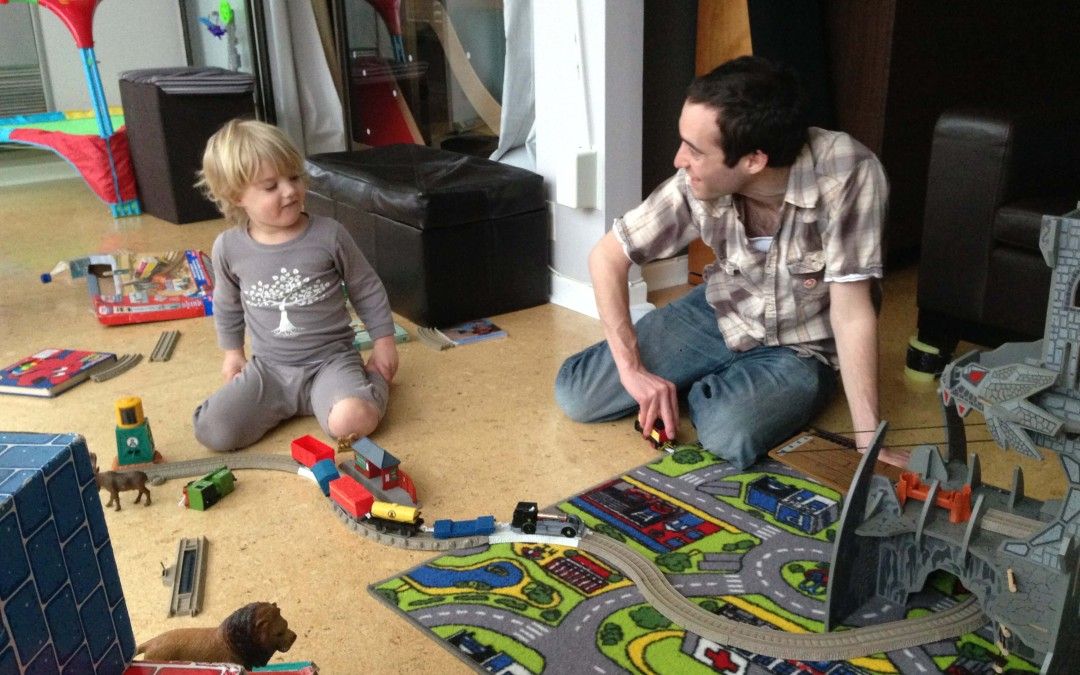 (Intervention data from the OO group was collected and is currently being examined.)
(Intervention data from the OO group was collected and is currently being examined.) - It is not clear to what extent brain structure and function have normalised in OO individuals. (MRIs were carried out on a subset of each group and this data is currently being analysed.)
- It is possible that subtle differences in social behaviour, cognition and communication still exist in those who appear to function normally.
- It is possible that parents of OO children were generally highly involved in the children’s treatment programmes and their social lives and this may maximise the chance of OO.
As the authors say, more research is needed to explain their findings and to assess how children with an ASD can be best helped to develop their potential.
It is normally the case that those with more severe symptoms of autism are unresponsive to treatment and are unlikely to experience an improvement similar to that described in this study.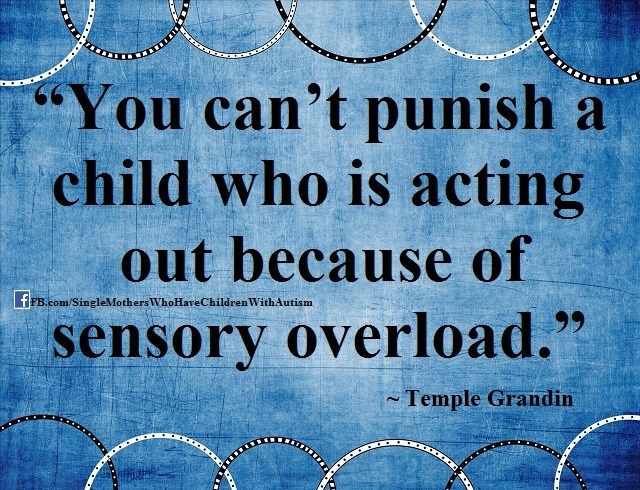 They are likely to find it difficult to live independently as adults and may need additional care and assistance. However, with the appropriate care and support, they can enjoy a good quality of life.
They are likely to find it difficult to live independently as adults and may need additional care and assistance. However, with the appropriate care and support, they can enjoy a good quality of life.
Autism: what can parents do to help their child?
The first 2-3 years are especially difficult for a couple who have had their first child. Young mothers and fathers are still learning to be parents, and it is quite difficult to understand that the development of their child is different from others. It's even harder to accept that your baby may have a mental disorder. Childhood autism, or as it is now also called, autism spectrum disorders (ASD), today occurs in every 88th child. How to recognize the disease and what should parents pay attention to? These and other questions related to autism were answered by the Head of the Department of Psychiatry and Narcology, Doctor of Medical Sciences, Associate Professor Grechany Severin Vyacheslavovich.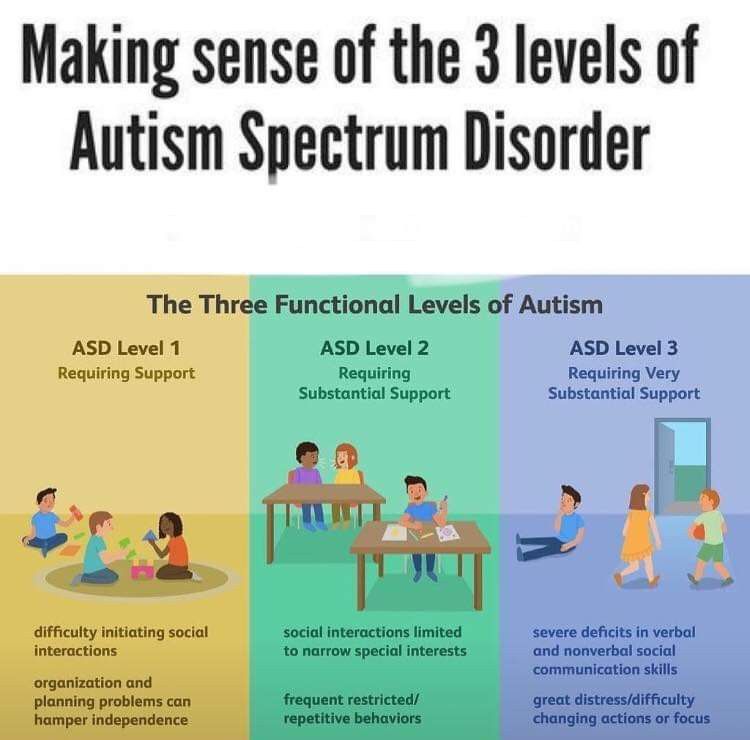
What is autism? Is this disease born or is it an acquired condition in the environment in which the child grows up?
Childhood autism is a congenital disease. The fact of its occurrence cannot be the result of such external causes as, for example, the social or cultural level of the family. The decisive role is played by the biological factor that determines the birth of such a child. Of course, there are external circumstances that, ceteris paribus, provoke the appearance of symptoms of this disorder - a severe viral infection, in some cases even a sharp change in the family situation, for example, a sudden separation from the mother, hospitalization of the child in the hospital and more. Often an autistic child is the firstborn in the family, and parents do not yet know how the child should develop. Subsequently, they recall that they often thought about why their child did not develop like other children, but still they did not suspect serious deviations.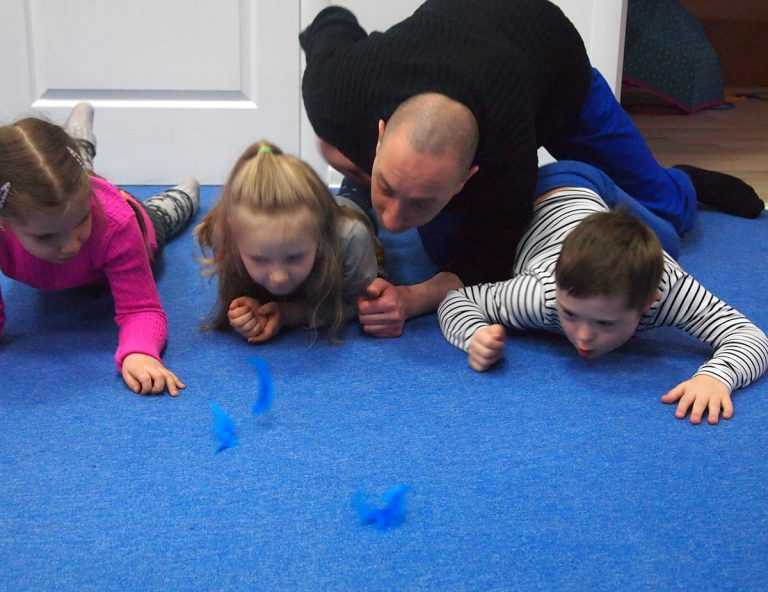 Therefore, this day - April 2 - just calls for adults to take a closer look at the child in general and notice any anomalies in his development as early as possible. And whether this is autism or some other disease - this should be decided by the doctor.
Therefore, this day - April 2 - just calls for adults to take a closer look at the child in general and notice any anomalies in his development as early as possible. And whether this is autism or some other disease - this should be decided by the doctor.
How can parents tell if their child has the condition?
Unfortunately, often parents do not immediately pay attention to the atypical, age-specific behavior of their child. This circumstance gave rise to some myths that autism can occur with the wrong parenting approach or after some medical interventions, including preventive vaccinations. This cannot be believed, since childhood autism also goes through a latent phase in its development, when its symptoms are almost imperceptible, but this does not mean that it was not there from birth. However, you need to know the so-called "red flags of autism", with the manifestation of which it is worth contacting a specialist. These include:
- child does not use pointing gesture,
- does not make eye contact, does not smile in response to a smile,
- does not respond to his name or to requests addressed to him,
- does not hear speech, does not understand why adults turn to him,
- does not say a 2-word phrase by age 2,
- does not use toys for its intended purpose.
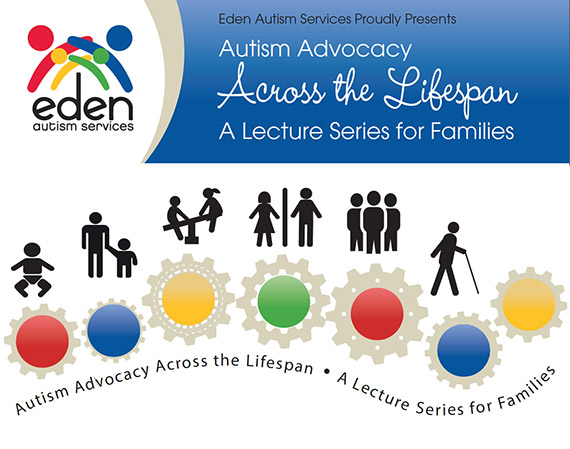
Often the child does not develop a plot game. For example, a car for a boy is not an image of a car that he saw on the street, but only wheels that can be turned. With the help of a toy, a child cannot reproduce the plot seen in life. In the same way, for a girl, a doll is not an image of a little man whom she can put to sleep or feed, but an indifferent object with moving parts. It is also worth paying attention to how the child communicates, whether he can follow the simple instructions of an adult, and concentrate his attention. If parents notice these features, then you need to see a doctor.
Is it possible to cure autism or only bring adaptation to life to a certain level? Which doctor to contact in this case?
Any specialist can suspect autism. Suppose the district pediatrician assumes that the child has autism and advises parents to contact a psychiatrist. However, it is important to understand that the final diagnosis may differ from the initial one, and there are other mental disorders besides childhood autism at an early age.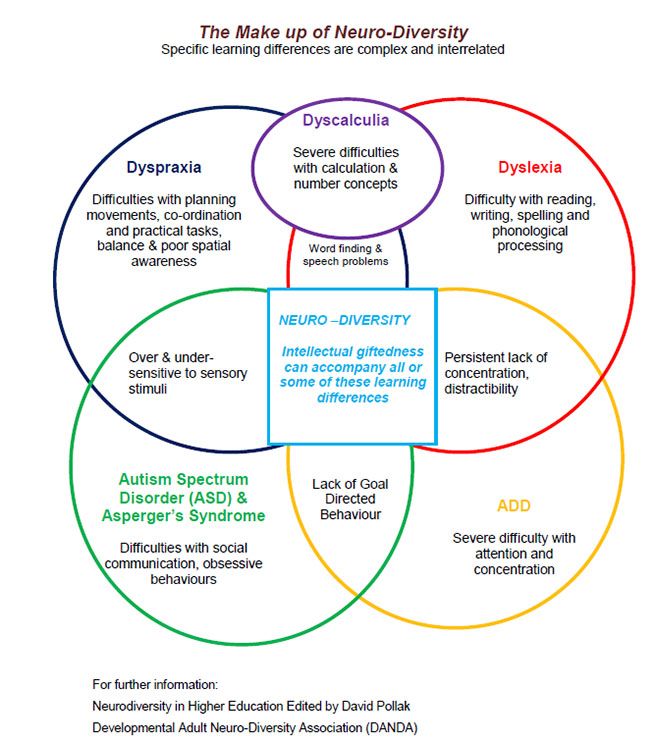
Is child autism treated at the Pediatric University Clinic?
We don’t have a separate department yet, besides, working with an autistic child is a long-term, often many-year work of a large team of different specialists, including not only doctors, but also correctional teachers, clinical psychologists and their varieties, rehabilitation specialists etc. However, we consult such children and their mothers at the stage of early diagnosis, when parents, for various reasons, are not yet ready to go to official psychiatric institutions. Thus, difficult and doubtful diagnostic cases are solved, the very first recommendations are given. For example, I receive at the Multidisciplinary Center, Vera Vladimirovna Pozdnyak takes at the Consultative and Diagnostic Center. We provide primary care to these children. We give advice on how to treat a possible disease in a child, how to behave with such children and what options for drug therapy exist. Most moms walk away grateful as they get answers to questions that have haunted them for a long time.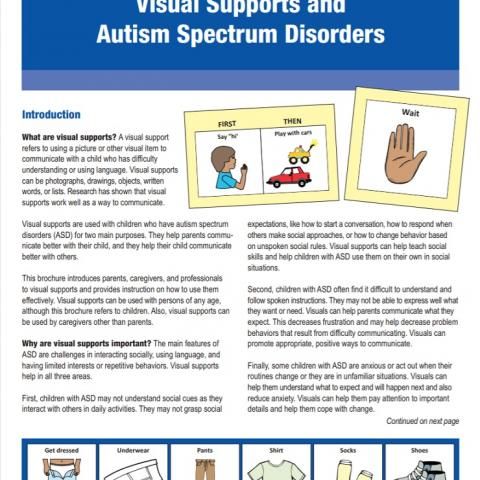
As far as treatment is concerned, we do not provide it. In addition, parents, faced with the problem of autism, must understand that it is impossible to completely cure it, and they will have to accept that throughout their life the child will be special, unlike all others. There has never been such a case that the same classic autism ended in complete adaptation in society, even if the child at some stage was able to master the profession. Although it is believed that with age the diagnosis of "autism" cannot be reconsidered for a child, but most of the actual "autistic" traits disappear on their own over time. And already at the age of 6-7, other problems related to behavior, underdevelopment of abstract concepts, misunderstanding of the context of communication, i.e. purely intellectual difficulties, come to the fore. In the future, parents will need to adapt the child to life with what is, including special requirements for the learning process. At home, you should also follow a special system of rules developed individually for a particular child.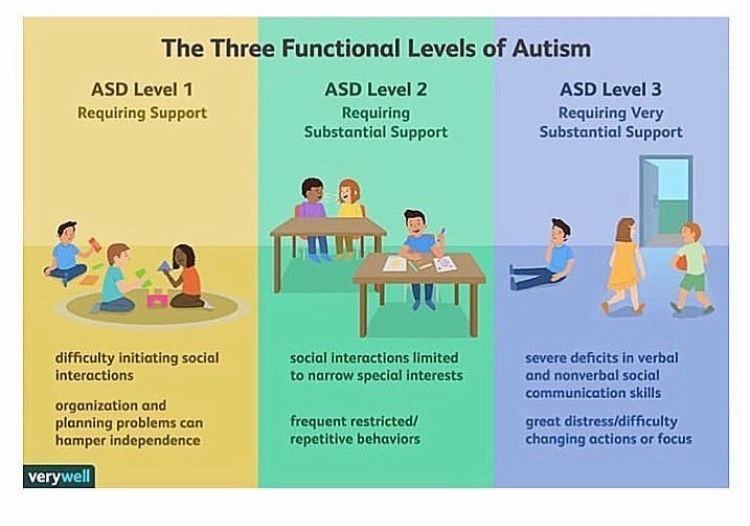
How can parents help their child cope with autism? Can you give any recommendations for them?
The most important recommendation, from our point of view, is to initially understand the child's capabilities, not to do too much and not to set too high goals. The biggest conflict arises precisely when parents are faced with a contradiction between the real abilities of the child and their own ambitions for him. And everything negative that can happen later - protests, disobedience, experiencing disappointment and despair - all this comes precisely from this conflict.
The main principle for parents is to gain a sense of confidence as a caregiver and get rid of excessive feelings of guilt. You need to know that an autistic child is very sensitive to the internal state of his parents, easily reacts to their anxiety, confusion. With regard to mental development, one should be prepared for the fact that it will take a long time to achieve success, even small ones.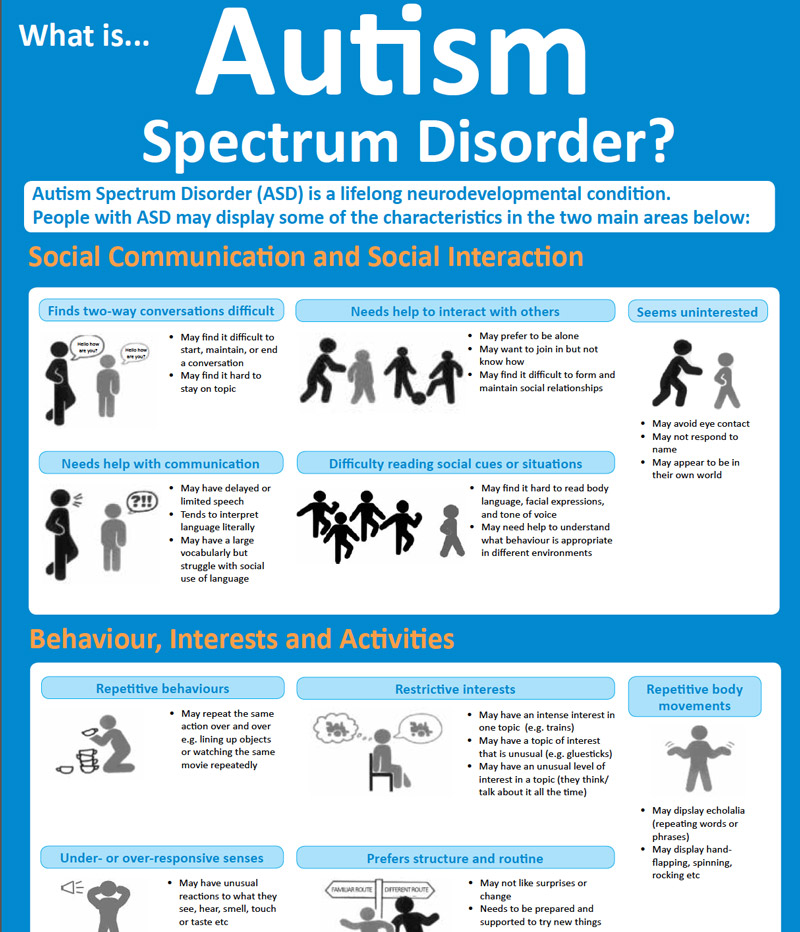 It does not happen that a child falls asleep with one person and wakes up with another person.
It does not happen that a child falls asleep with one person and wakes up with another person.
Another common mistake is the opinion that the most important thing for a child is to learn to talk. This is not true. If speech does not appear on its own, then there are objective reasons for this. As soon as the prerequisites for pronouncing words are formed, the child will begin to speak independently without our help. Therefore, you should not artificially try to accelerate the development of such a child.
Is it possible to say that modern communication devices, computers, gadgets, mobile phones can develop autism in a child? And do they somehow affect children who have already been diagnosed with this disease? (Can modern technology help to socialize or, on the contrary, contribute to the fact that the child withdraws more and more into himself?)
In autism, this is neither good nor bad. There can be no universal recommendation here, everything is individual.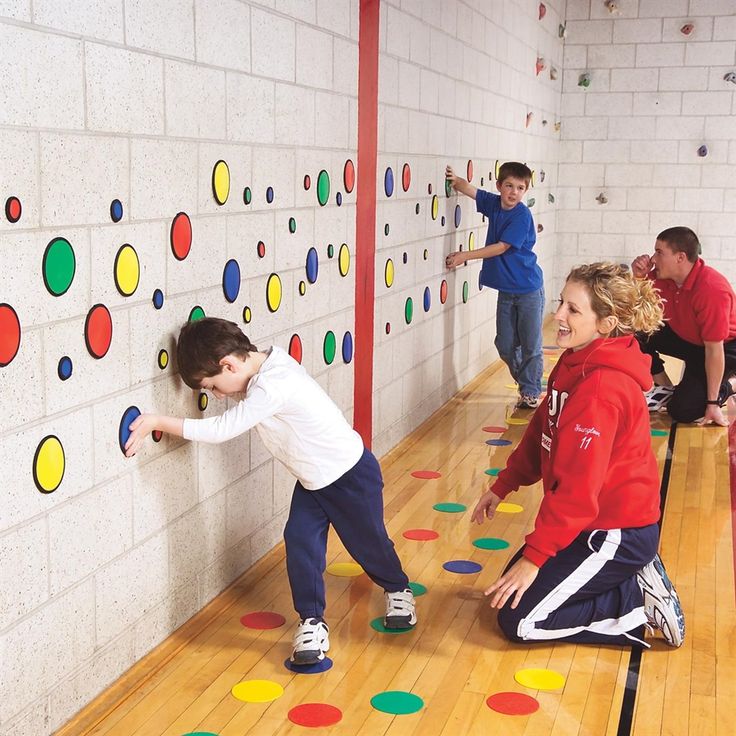 It is important for a mother to understand whether her child is now ready to master society or whether she still needs to wait, subsequently carefully “grafting” him to life. Here the advice of a defectologist, a psychiatrist will help. True, very often the mothers of such children are guided only by their own opinion, without accepting someone else's help. This happens if their relatives betrayed them, the father left, the grandparents did not accept the child, and the mother is left alone with the problem.
It is important for a mother to understand whether her child is now ready to master society or whether she still needs to wait, subsequently carefully “grafting” him to life. Here the advice of a defectologist, a psychiatrist will help. True, very often the mothers of such children are guided only by their own opinion, without accepting someone else's help. This happens if their relatives betrayed them, the father left, the grandparents did not accept the child, and the mother is left alone with the problem.
Why is autism thought to be more common in boys? And why is it more characteristic of them?
Indeed, this is a fundamental fact. And childhood autism is not the only example. A lot of mental disorders occur more often in boys. Why this is so is hard to say. There are many hypotheses for this, but an exhaustive explanation has not yet been received.
Maybe there is some relationship between the mother's condition during pregnancy and the child's subsequently diagnosed autistic disorder? Is it possible to somehow predict the birth of a child with autism? What are the medical reasons?
Mothers often ask me: “Tell me, please, where, at what stage did I make a mistake? What did I do wrong? Unfortunately, despite the fact that we live in the 21st century, there are no prerequisites to predict the birth of such a child.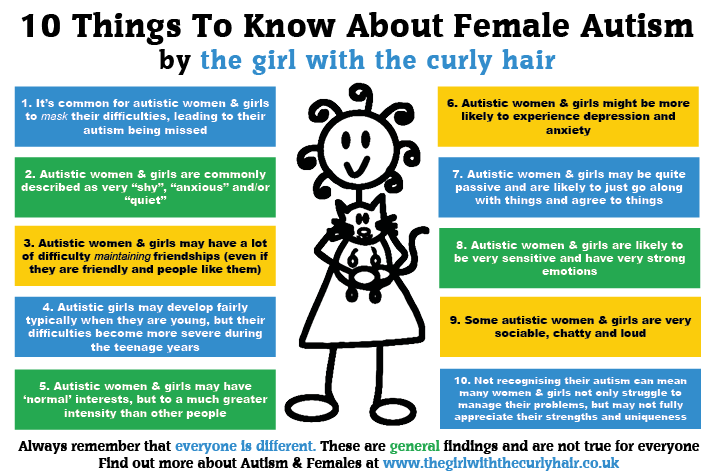 With the exception of the examination of the amniotic fluid for gross genetic anomalies. If this is observed, then we can say with a high degree of probability that a clinical picture of autism should be expected here. In all other cases, it is difficult to predict anything. There is no data for this.
With the exception of the examination of the amniotic fluid for gross genetic anomalies. If this is observed, then we can say with a high degree of probability that a clinical picture of autism should be expected here. In all other cases, it is difficult to predict anything. There is no data for this.
Is it true that autism is more common in children today than it was 10, 20, 30 years ago?
It is believed that the number of children with autism has not increased, diagnosis has improved. This happened due to the spread of information about autism and its manifestations. As a result, parents began to pay more attention to what they had not noticed before. And, as a result, the number of visits to doctors for the purpose of making a diagnosis has increased. What used to cause confusion and misunderstanding in parents, now prompts a search for answers in specialized literature, the Internet. As a result, the symptoms of autism began to be detected more often and at an earlier age. And here there is another extreme - the emerging trend towards overdiagnosis of this disorder. A special term has even appeared - autism spectrum disorders, the role of which is seen in drawing more attention of parents to any symptoms of deviant development, closely or remotely resembling childhood autism, in order to promptly apply for practical assistance.
And here there is another extreme - the emerging trend towards overdiagnosis of this disorder. A special term has even appeared - autism spectrum disorders, the role of which is seen in drawing more attention of parents to any symptoms of deviant development, closely or remotely resembling childhood autism, in order to promptly apply for practical assistance.
Can an autistic child go to a regular school, or is it better to send him to a special school?
There are inclusive types of education that allow such children to study in a regular school. A group of 3-4 such children is recruited, and most of the time they study with a separate teacher. Periodically, the teacher selectively leads, as far as possible, such children to classes with healthy children. But the need for such classes must be considered individually. All possible consequences should be taken into account. For example, in practice, children with autism are not very physically healthy, they are characterized by weak immunity - this increases their risk of getting respiratory and other infectious diseases, which usually occur in a more severe form in children with autism.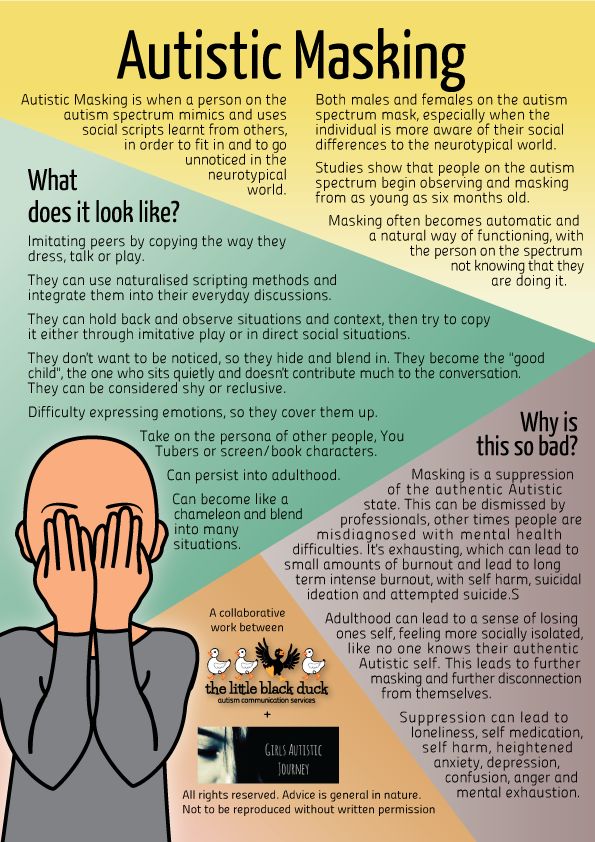 After all, even under normal conditions, autistic children get sick more often than other children. In addition, education in a mass school is possible if there is a special assistant or tutor nearby, a person who guides the child in each specific case and tells him what to do. Often such children, being in mass education, do not follow the school curriculum, but only formally attend the lessons. But what he will learn as a result is a separate question. More often it is a kind of “familiarization” with educational material. And in this situation, we have no right to demand that the child master the entire program. However, one should not forget that traditional defectological assistance in the conditions of ordinary correctional kindergartens and schools has great potential in terms of filling cognitive deficits, and the passage of inclusive education still does not eliminate the need to acquire specialized skills using routine correction methods.
After all, even under normal conditions, autistic children get sick more often than other children. In addition, education in a mass school is possible if there is a special assistant or tutor nearby, a person who guides the child in each specific case and tells him what to do. Often such children, being in mass education, do not follow the school curriculum, but only formally attend the lessons. But what he will learn as a result is a separate question. More often it is a kind of “familiarization” with educational material. And in this situation, we have no right to demand that the child master the entire program. However, one should not forget that traditional defectological assistance in the conditions of ordinary correctional kindergartens and schools has great potential in terms of filling cognitive deficits, and the passage of inclusive education still does not eliminate the need to acquire specialized skills using routine correction methods.
Whatever problems parents face on the difficult path of upbringing, it is important to remember that parental love is important at any stage of growing up.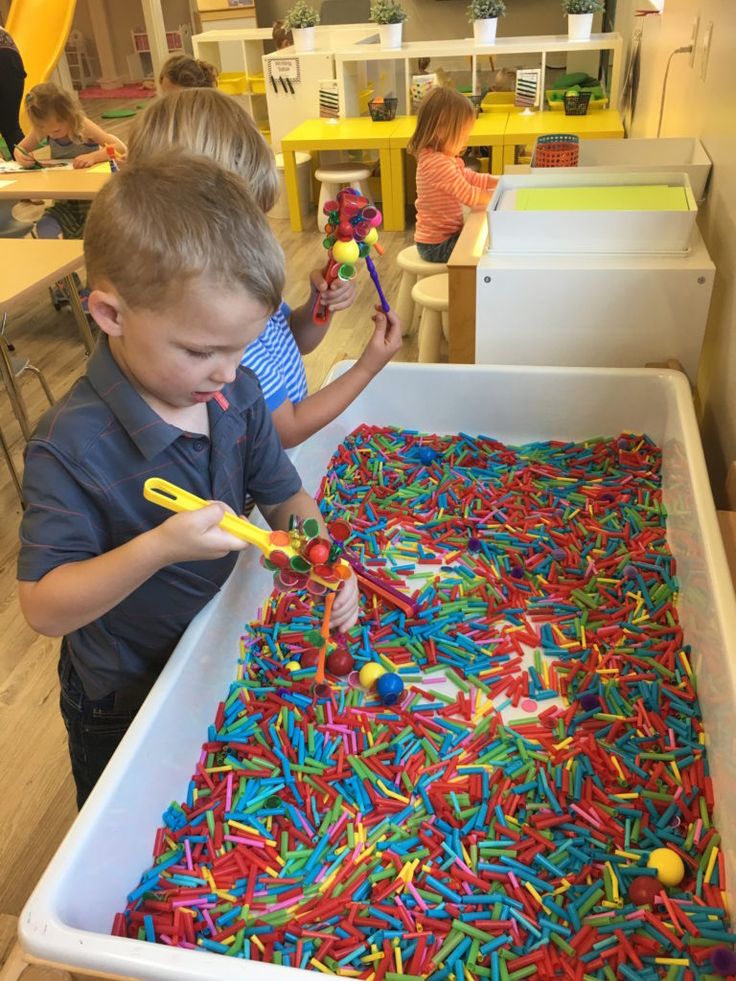
Publication date: 2.04.2020
Getting angry. How adults with autism live
Vlad loves to travel, Zhenya plays the piano and sings, Alibek makes cartoons, Adiyar writes books. All these young men, living in different parts of the vast post-Soviet space, have one thing in common: they have autism spectrum disorders (ASD). There is a high probability that they will not be able to develop their talents and do what they love, and after the death of their parents they will end up in neuropsychiatric boarding schools. The practice of excluding people with mental disorders from society has remained in Russia, Kazakhstan and Kyrgyzstan since the times of the USSR. Gradually, the situation is changing for the better, but so far the parents of people with autism have no idea what kind of life awaits their children. The only thing they know is that they must have time to help.
Despite numerous jokes about "what was not in the USSR", there was autism in the Soviet Union. But almost no one knew about it, although it was described as an independent disorder back in the 40s of the last century. Despite this, until the collapse of the USSR and even after, children were often diagnosed with "childhood schizophrenia", and adults spent their lives in neuropsychiatric boarding schools. It took half a century for autism to be officially recognized as a special type of disorder in the Soviet Union. This happened in 1989. However, it was not easy to bring this to the understanding of doctors, teachers and society as a whole.
But almost no one knew about it, although it was described as an independent disorder back in the 40s of the last century. Despite this, until the collapse of the USSR and even after, children were often diagnosed with "childhood schizophrenia", and adults spent their lives in neuropsychiatric boarding schools. It took half a century for autism to be officially recognized as a special type of disorder in the Soviet Union. This happened in 1989. However, it was not easy to bring this to the understanding of doctors, teachers and society as a whole.
Six years ago in Russia, children with autism were considered unteachable. And only the law passed in 2013 abolished this approach, recognizing all children as having the right to education. Nowadays, the diagnosis of autism in Russia, Kyrgyzstan and Kazakhstan is still reluctant to make: the situation depends on the region in which the family lives. Foreign and post-Soviet statistics differ significantly, while the frequency of the disorder “does not depend on the country, nation, gender, standard of living, etc.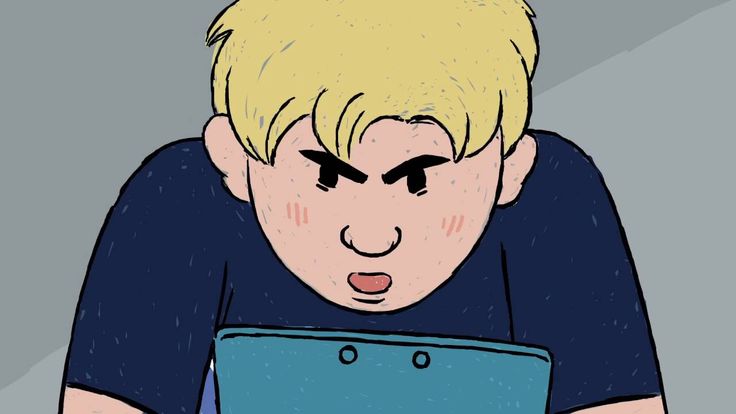 ,” says Sergey Morozov, chairman of the Dobro Society for Autistic Children. "If worldwide the diagnosis of autism occurs in 1-1.2% of children, then in Russia it is 0.08%," he states.
,” says Sergey Morozov, chairman of the Dobro Society for Autistic Children. "If worldwide the diagnosis of autism occurs in 1-1.2% of children, then in Russia it is 0.08%," he states.
Within the framework of the Perspectives project, journalists told about a dozen stories of adults with autism and about the struggle of parents for the future of their children. Present Time publishes a small part of this project.
This nearly two-minute cartoon about the war was awarded a silver medal at the World Festival of Achievement for People with Autism in Vancouver in the Art category. Its author is 19-year-old Alibek Karatay from Almaty. Alibek went through all circles of education: ordinary and special schools, psychologists, rehabilitation centers, and finally, when the parents allowed the child to develop in accordance with their needs, sensitively listening to his desires, gently guiding and supporting the desire for modeling, drawing and skating. alpine skiing, they managed to achieve such a result.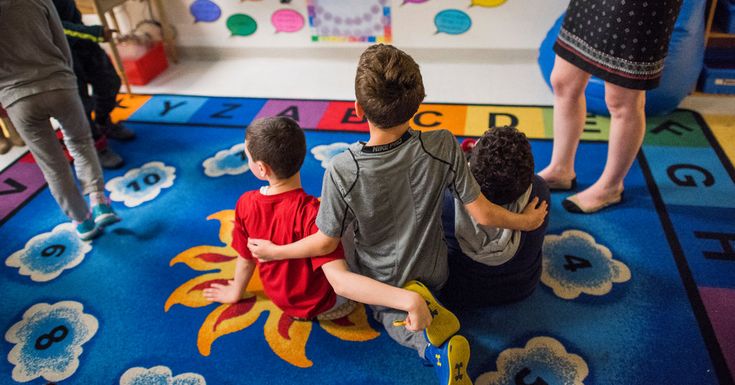
This spring in the Museum. Alibek Kasteyeva and her diagnosed friend presented a joint exhibition "Two Worlds - Two Destinies". The public appreciated more than a hundred works of art. However, despite the enviable success, immediately after the exposition, Alibek had to take an academic break at the College of Arts. In the student environment, as in school, they are still not accepted. Impulsive, a little capricious, but childishly trusting and naive, Alibek is a stranger among his peers. At the moment of the interview, Alibek is going through his next emotional crisis.
- I don't want my face to be seen! - Alibek categorically warns, addressing through his mother Zhanat Karatay. - Who is this aunt? I don't want to talk to anyone. I want us to go home, and I have been playing computer games all day, - he puts a condition in front of his mother in a demanding tone.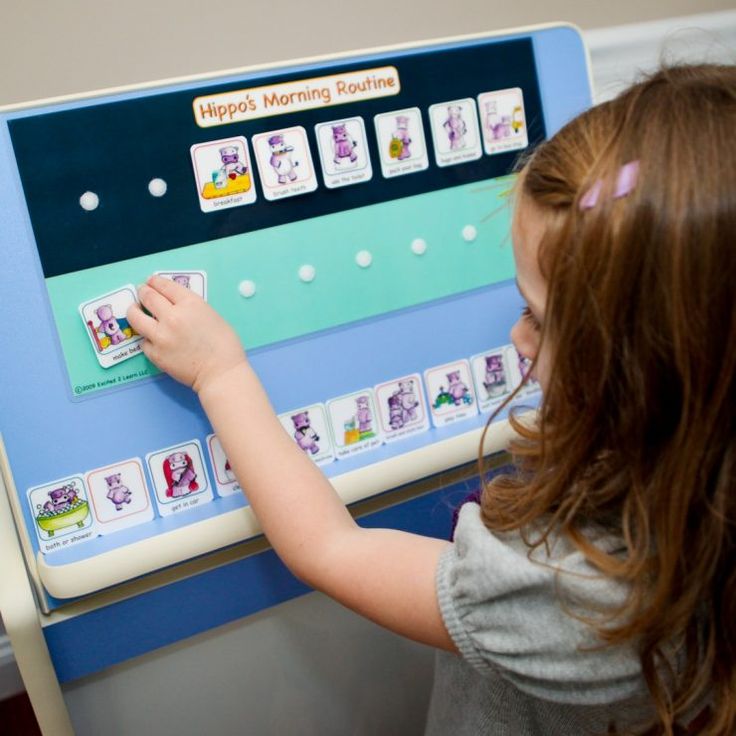
To persuade Alibek to give an interview, Zhanat's mother even has to promise her son a trip to the mall and a few hours playing slot machines. Alibek agrees on his own terms - to hide emotions behind crossed arms. Even the posture of a young man is a defensive reaction to the world around him that is hostile to him. The most exciting memories for the guy are the school time, and, judging by the tears in the eyes of his mother Zhanat, the young man, answering the questions of an unfamiliar "aunty" journalist, talks about his most hidden sufferings.
21-year-old Adiyar is usually used as an example for children with ASD to show that if you wish, you can achieve anything. The young man with Asperger's syndrome is a graduate of Hofstra University in the US, but for all his visible achievements, Adiyar is going through hard times right now.
- You know, an autistic person is the same person as other people, only he has more developed fears, phobias, and insecurity than we do, - while Adiyar is getting ready for an interview, his mother Zaure says. “Our teachers simply don’t know what to do when an autistic person starts screaming, getting nervous, throwing objects. And here the main thing is to show patience, to calm the autistic person, to prevent such a reaction. For example, now Adiyar was nervous, did not want to go to a meeting with you, and began to demand food. And while you were downstairs, we took him something to eat in the lobby of the hotel. That's it, Adiyar calmed down, - Zaure Zharmenova reveals the simple secrets of communicating with special people.
“I couldn't study at all in Kazakh schools,” says Adiyar, a perfectly normal young man whose autism is betrayed only by excessive gestures. “They didn’t accept me there. There, the students rejected me and the teachers, and I could not find a common language with the teachers.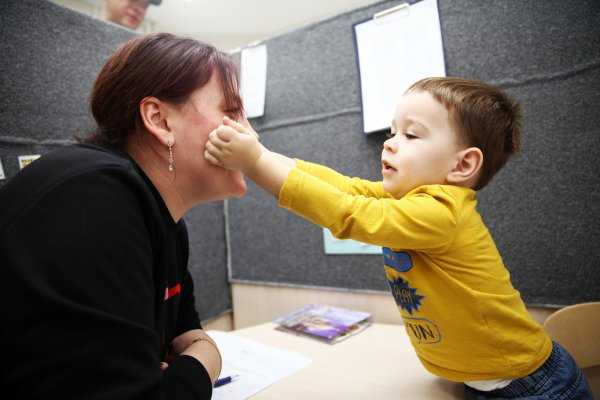 I remember once throwing shoes at a teacher,” Adiyar says, trying to hide his embarrassment. – And in the American school (a private school in Almaty) there was more understanding. There, much less attention was paid to the fact that I behave differently from the rest of the students. After school, I entered a university in Germany, but I dropped out after a week because I was under a lot of stress without my mother. I could not even sleep and because of this I began to roll. I had to be taken away from there,” the young man says, embarrassed.
I remember once throwing shoes at a teacher,” Adiyar says, trying to hide his embarrassment. – And in the American school (a private school in Almaty) there was more understanding. There, much less attention was paid to the fact that I behave differently from the rest of the students. After school, I entered a university in Germany, but I dropped out after a week because I was under a lot of stress without my mother. I could not even sleep and because of this I began to roll. I had to be taken away from there,” the young man says, embarrassed.
Adiyar still entered the University, but in the USA. His mother could not stay with her son for a long time. The young man experienced loneliness in a foreign country hard. Adiyar then wrote a book about a non-existent planet, on which there is nothing that, according to him, annoys the young man in everyday life on Earth. "Kajar - the planet of happiness" did not become a bestseller, but allowed the author to pour out his soul.
Adiyar at that moment was helped out of depression by the organization of the educational process in the United States. For children with special needs in every university in America, there are services of the so-called adaptation service. For example, knowing the dislike of people with autism for haste, they are not put within deadlines when doing homework. This technique gave its result. Adiyar graduated with honors from the university, he made friends, but all this was left in the past when the graduate returned to Kazakhstan, the former "hostile" environment. The prestigious diploma of a qualified geologist is now gathering dust on the shelf.
For children with special needs in every university in America, there are services of the so-called adaptation service. For example, knowing the dislike of people with autism for haste, they are not put within deadlines when doing homework. This technique gave its result. Adiyar graduated with honors from the university, he made friends, but all this was left in the past when the graduate returned to Kazakhstan, the former "hostile" environment. The prestigious diploma of a qualified geologist is now gathering dust on the shelf.
“To be honest,” Adiyar says, “I only went to an interview once. I was terribly agitated, I could not tell anything about myself, in general, I failed the meeting. And in my resume, I do not hide anything, I write everything as it is, - the young man honestly says. Adiyar is modestly silent about the fact that he became the first ambassador in Kazakhstan of a project initiated by the French Autism Association - Autistana. On the page of the Embassy of Autistan in the Republic there is an introductory word from Adiyar:
“I've always been weird. I had problems at school. In the dining room I always sat alone and did not talk to anyone. He walked down the corridor and looked at his feet. Everyone thought I was strange because of my hand movements, the fact that I galloped through the corridors like a horse. Also, I could never understand how other people feel, and could not understand their mood. I was taken to psychologists for a long time, until, finally, it turned out what was the matter. I have Asperger's Syndrome, I'm autistic. This diagnosis has changed a lot in my life. Now I have made great progress (thanks to my mother's patience and faith) and started thinking about helping such children. So I became part of the Autistan project.”
Note: Asperger's Syndrome is one of five common developmental disorders characterized by severe difficulties in social interaction and a limited, stereotyped, repetitive repertoire of interests and activities. It differs from childhood autism (Kanner's syndrome) primarily in that speech and cognitive abilities generally remain intact. The syndrome is often characterized by marked clumsiness.
It differs from childhood autism (Kanner's syndrome) primarily in that speech and cognitive abilities generally remain intact. The syndrome is often characterized by marked clumsiness.
Now Adiyar lives in a separate apartment with his brother's friends, who, understanding his diagnosis, help him adapt among his peers. In order not to go crazy, the young man sat down to write a new book. It tells about the inhabitants of a tiny city, forced to survive in the conditions of the occupation of a huge number of giant ants. Adiyar does not hide the fact that after the peaks he conquered, he continues to feel like a tiny man among big creatures who do not hear his silent "cries" for help.
For the sake of her son, Natalia Evteeva created a system in Khabarovsk to help children with autism. The son has grown up, and, therefore, the time has come to take care of adults.
– He folds all our laundry at home! Isn't that happiness? He makes all the beds in the house! I made this commitment. Changes our bed linen for everyone!
Changes our bed linen for everyone!
Natalia Evteeva, Vlad's mother, talks about skills that an ordinary person is not proud of. Now her son is 22. When Vlad was six, his mother did not hope that he would ever be able to lead a normal life. The boy with autism was out of control. Vlad does not speak today, and in childhood, the only way to communicate with his parents was screaming and crying. - A psychiatrist alone at the age of ten or eleven told me when "puberty" would be, it would be very difficult. There will be a hormonal explosion and we'll see where it goes. I say: "Where can he go"? It was all so unusual for me. And she says: "For evil or for good."
Now Natalia Evteeva often talks about good and evil. Evil is when Vlad gets sick. Good is development.
When Vlad was six, Natalia Evteeva teamed up with other parents of children with ASD, and groups were opened for them in a kindergarten. Vlad turned seven - she made sure that the first specialized classes appeared in the correctional school. Further, Natalya was supported in the regional Ministry of Education - in Khabarovsk, a regional center for helping children with severe and multiple developmental disorders was launched. Recently, a group of young people has also been working at the center. Because Vlad is already 22. He graduated from a correctional school, he cannot enter a technical school due to the severity of the disease, but his mother cannot stop fighting for development.
Further, Natalya was supported in the regional Ministry of Education - in Khabarovsk, a regional center for helping children with severe and multiple developmental disorders was launched. Recently, a group of young people has also been working at the center. Because Vlad is already 22. He graduated from a correctional school, he cannot enter a technical school due to the severity of the disease, but his mother cannot stop fighting for development.
The adult classroom is like a living room combined with a kitchen. There is a refrigerator full of food, a stove, a sink, a kitchen table. Each item has an icon with its name and a schematic image. Near the entrance is a blackboard, where the schedule of pupils is built from similar cards with actions. For example, opposite the photo of Vlad and the time "11 00" there is a badge with a vacuum cleaner. Pictures on objects help students navigate in space. With the help of the schedule, they learn to plan and consistently perform actions.
For people with severe and multiple developmental disabilities, it is important to develop skills in the environment in which they will be used. Therefore, ideally, classes should take place in a “training” apartment. This was also in Khabarovsk. In 2015, Natalia's NGO "Real Help" won a grant to create training housing. The project was designed for eight months. During this time, five people have been trained in the apartment, including Vlad Evteev.
- He began to plan trips, better understand the time. For example, I never let him go out alone. It was actually the fear of God for me. But we started structuring: you go outside, then you come back, then we sit in a car with you and drive in a big circle (Vlad likes to ride in a car). So he went and threw out the trash! I realized that I could trust him.
Three years ago, the Khabarovsk administration decided to consider the possibility of giving "Real Help" an apartment for permanent training, but the organization has not received it in three years.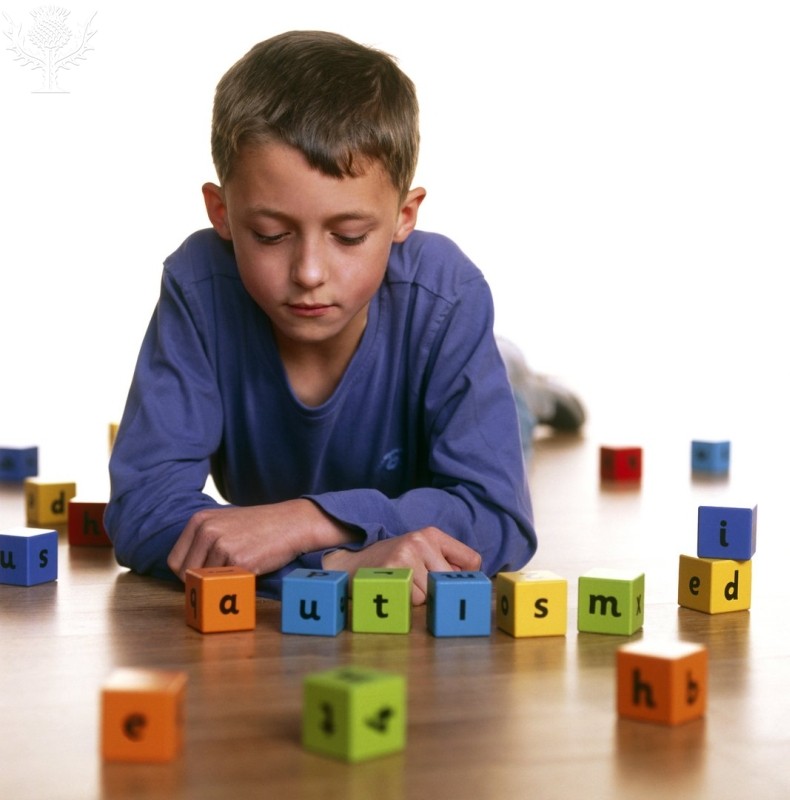
Vlad doesn't like that his mother came into his room without asking.
- Mom, Mom! he repeats with emphasis on the second syllable and points to the door.
There are many piles of papers in the room. Using A4 sheets, Vlad communicates with his parents and two brothers. He draws plans for future trips, for example, soon he and his mother will fly to Ulan-Ude, or writes what he needs to buy.
Vlad also likes to check the tags with the labels on the clothes of his acquaintances, and then make schedules of who should wear what clothes and when. For this, his father calls him a captain. He likes to listen to music, so when he hears a melody he likes, he asks to write its name. Later he will find a track on the Internet - Vlad himself learned to use a computer and does it freely.
- The most amazing thing is that when you develop it, its cognitive sphere begins to expand, - Natalya says later. “And he claims to have a normal life. He has needs. You need to be ready to provide them yourself. Do not go crazy, because you already somehow get used to limiting.
Do not go crazy, because you already somehow get used to limiting.
Several times Vlad ran away from home to ride the bus. He had to be looked for with the police, but the last three times he returned on his own. Natalya Evteeva rejoices in these outbursts of freethinking. They mean that her son is developing, and the disease is receding. The main thing is that Natalia still has time to make sure that her son has somewhere to go and where to return.
When a child with autism is born in a Kyrgyz family, many parents first turn to the mullah. Most often in such cases they say "goats tiidi" (evil eye - ed.), looking for a connection in their own misdeeds and the sins of previous generations. In extreme cases, they may decide that a demon has moved into the child and needs to be expelled. This is how Anara Asanalieva, a psychologist and specialist in working with citizens with autism in the Hand in Hand public association, herself a mother of a special child, tells about the situation of people with autism in Kyrgyzstan.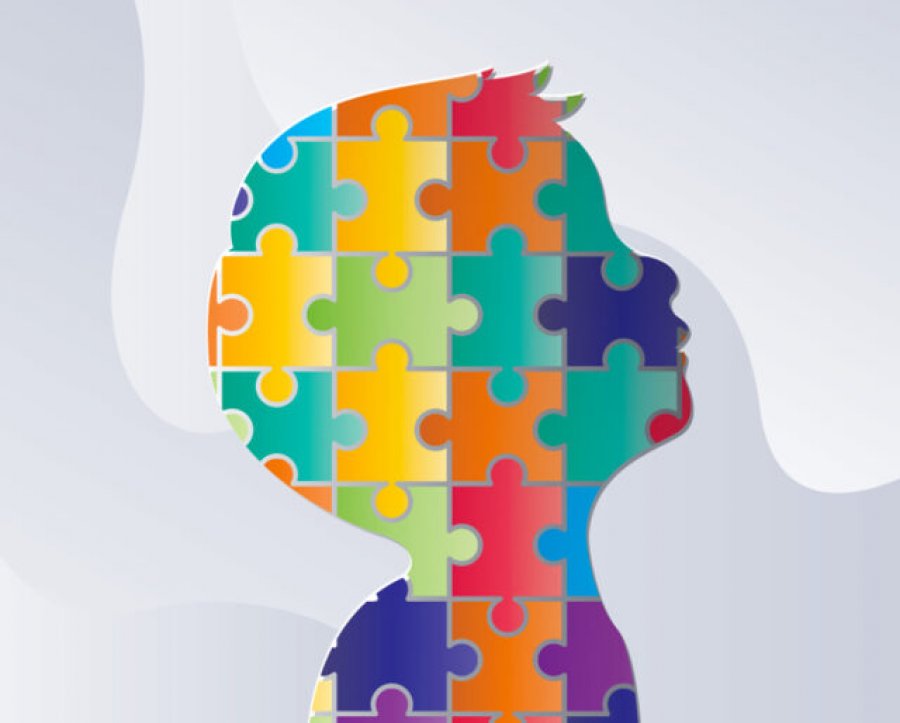
– There are cases when relatives blame a woman for what happened. In some families, relatives on the part of the husband begin to blame and put pressure on the daughter-in-law, she is forced to immediately give birth to the second. Or a man is persuaded to take a second wife, convincing that her children will be healthy. Perhaps, due to the fact that no one can tell parents the exact reason, people begin to self-flagellate, delving into themselves and other psychological problems.
In 2012, parents of children with ASD in Kyrgyzstan decided to help their children themselves and created the Hand in Hand organization. The association operates on charitable donations. They are not enough for the salaries of specialists, so families have to pay six thousand soms per month ($87) for classes with teachers. This is a decent amount for a country where the average salary per month is 200-250 dollars. Minimal support "Hand in hand" is provided by the Bishkek mayor's office, providing a two-story building and paying for utilities. This is the only help from the authorities.
This is the only help from the authorities.
- In the regions of Kyrgyzstan there are centers where children with autism are admitted, but they work as day care centers, - explains Cholpon Uzakbaeva, PR manager of Hand in Hand. - And there, specialists are making efforts, working, but they do not have a systematic approach, they do not have special experience in working with such children, so this does not give the expected effect. There are also two commercial centers, but the fees there are high and many cannot afford it.
Hand in Hand is the only organization where adults with autism can also get help. After the age of 18, the diagnosis of autism is usually changed to other mental disorders, therefore, according to the Ministry of Health, there are no adult citizens with this disease in Kyrgyzstan. The public association with adult citizens with autism continues to work.
- We have several parents with adult children. With them we were able to realize a project to train citizens with autism in culinary skills.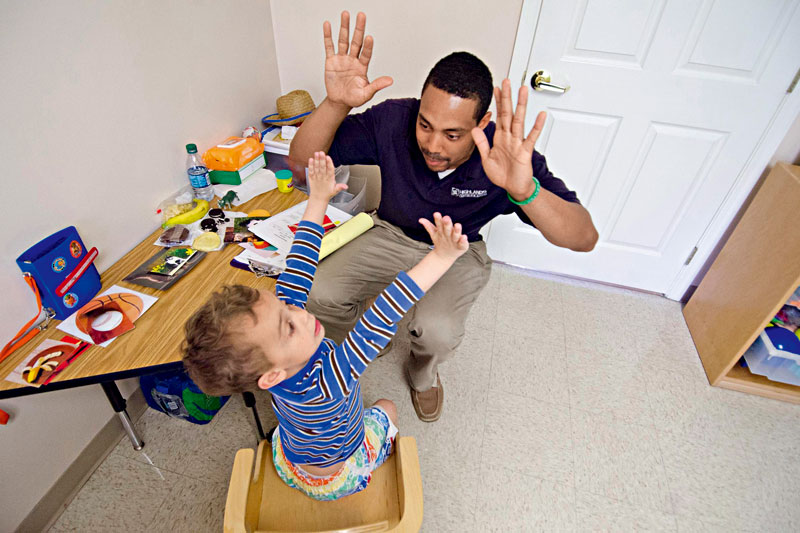 We see that they study well and can work. The problem is that we cannot cover the whole country and all categories, because we are not a state organization, we are a parent organization,” says Jyldyz Sadykova, founder and head of Hand in Hand.
We see that they study well and can work. The problem is that we cannot cover the whole country and all categories, because we are not a state organization, we are a parent organization,” says Jyldyz Sadykova, founder and head of Hand in Hand.
Parents, having learned about the organization, themselves brought adult children here. Specialists were able to gather several groups and start working with them. But despite this, the experience of working with adults can hardly be called entirely positive. Teachers are faced with a problem: their adult wards often did not receive the necessary assistance in childhood, so many are in a neglected state. Their behavior is difficult to correct.
– There were several more appeals, they brought children who are already 30 years old. But we refused to work with them, because we do not have a full-fledged experience of working with adults. They are so neglected that no one has worked with them all this time. Now we are trying to reach people under 25, because we can do something, teach self-service, be more independent,” says Cholpon Uzakbayeva.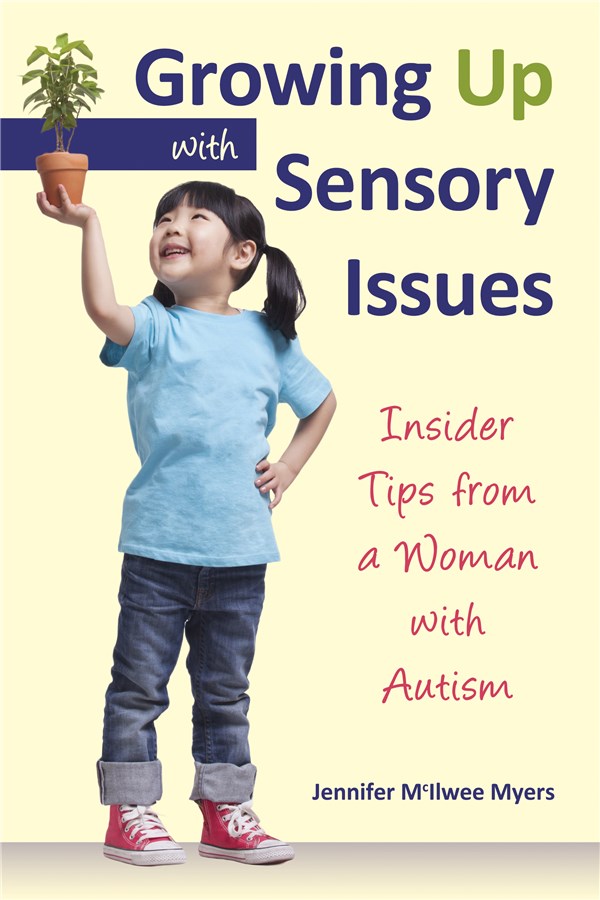
The head of the public association Zhyldyz Sadykova adds:
– I know a woman who gave her whole life to a child. Now he has such aggression that she was forced to hand him over to a psycho-neurological boarding school.
Among the reasons why Kyrgyzstan does not pay due attention to people with autism, experts note that this is one of the few countries that have signed, but have not yet ratified the UN Convention on the Rights of Persons with Disabilities. Seynep Dyikanbayeva, a lawyer with the Association of Parents of Disabled Children, believes that the financial side of the issue is a deterrent. In her opinion, the authorities are afraid that if the Convention is ratified, it will be necessary to create real conditions for the life of people with disabilities, and this will require additional money.
- We still hope that in 2018 this will happen, and Kyrgyzstan will ratify the UN Convention on the Rights of Persons with Disabilities. The draft resolution has already been sent to the government.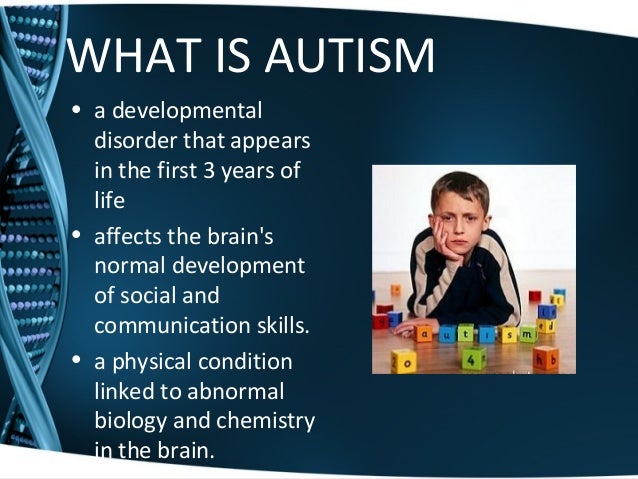 We believe that the authorities will show political will.
We believe that the authorities will show political will.
Socialization and employment of not only people with autism, but also other people with disabilities in Kyrgyzstan is the exception rather than the rule. The Ministry of Labor and Social Development estimates that 85% of persons with disabilities of working age are unemployed and excluded from the labor market.
Parents of children with autism can only rely on themselves. So today, Hand in Hand staff train families of people with autism to care for and develop special children and adults. The public association believes that the best way out in the current conditions is to make parents specialists so that they can teach their child throughout their lives.
Anna Pupyreva moved to live in Israel four years ago when she realized that her sixteen-year-old son had no prospects in Russia. Now the woman’s Facebook page is full of photos of Zhenya from extracurricular activities: a guy with glasses is studying the methods of work of Israeli forensics, in another picture he is kayaking.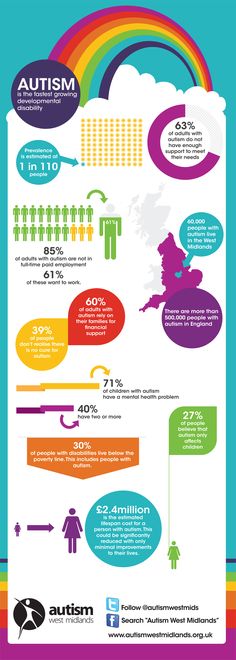 In his native country, Evgeny Pupyrev studied at home and had almost no contact with the outside world.
In his native country, Evgeny Pupyrev studied at home and had almost no contact with the outside world.
- In Russia, I heard from my friends: "Come, but alone without a son." Or we weren't invited to a birthday party. They said why our children need such a trauma.
There was no question of further employment. At the same time, the mother learned that Yevgeny's lung disease was progressing. Thus, the idea of repatriation was born. Anna Pupyreva, as she herself says, arrived in the Israeli city of Haifa as a person with a deep sense of inferiority due to the fact that her child has autism, but it turned out that in the new country people with autism spectrum disorders lead a normal life. The process of their integration begins with a nursery or kindergarten. In the case of Yevgeny Pupyrev, specialists began to socialize at school.
The guy entered a class for children with autism in a correctional institution. It is designed for eight people. Each one has an individual program.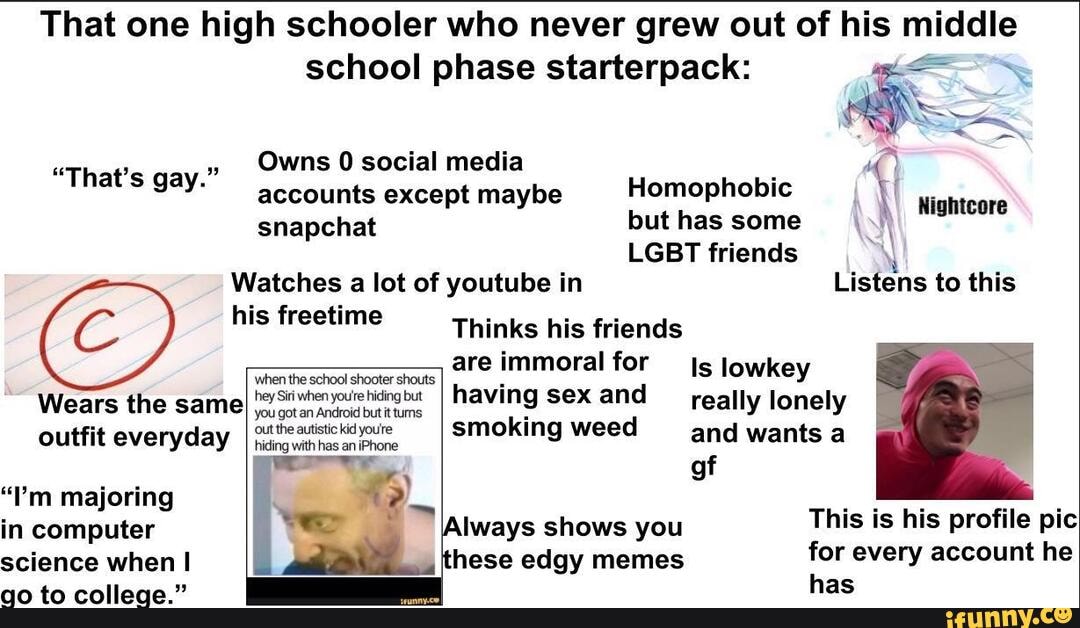 The lessons teach not only mathematics and Hebrew, but also how to cook food, choose a route on the street, pay for the bus. According to another parent of a child with autism who moved to Israel, Yuri Goldman, there are behavior classes in a bank and a cafe. The man maintains a YouTube channel about his repatriation and the support system for people with disabilities in Israel.
The lessons teach not only mathematics and Hebrew, but also how to cook food, choose a route on the street, pay for the bus. According to another parent of a child with autism who moved to Israel, Yuri Goldman, there are behavior classes in a bank and a cafe. The man maintains a YouTube channel about his repatriation and the support system for people with disabilities in Israel.
- Many (parents) write to me that they tried to get as much as possible what is in Russia, but there is nothing. If you look at Moscow and St. Petersburg, then there is something. If you look at the regions, it's really bad. Many write to me and ask how to move if there is no Jewry. Even such questions are asked.
Yuri Goldman knows eight families who have moved to Israel from the CIS countries over the past year because of their children's autism.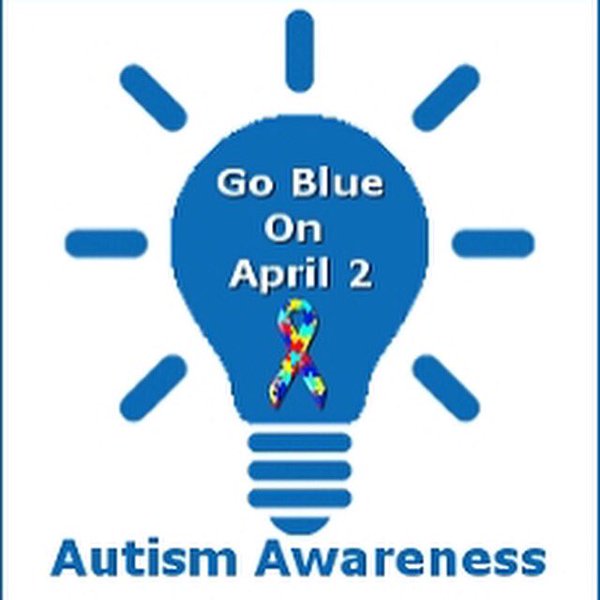 Repatriate Maria Zhdanova speaks of about ten such cases in the same period. The woman learned about them from a Russian-speaking Facebook group that unites parents of such children in Israel. Now it consists of 920 people.
Repatriate Maria Zhdanova speaks of about ten such cases in the same period. The woman learned about them from a Russian-speaking Facebook group that unites parents of such children in Israel. Now it consists of 920 people.
According to the Israeli Association of Parents of Children with Autism "ALUT", there are ample opportunities in the country for the life of people with ASD. Depending on the severity of the disease, they can study in regular schools with accompaniment, and in specialized classes. After graduation at the age of 21, preparatory courses for entering universities are available to them. There are also a number of organizations involved in the employment of people with disabilities. For example, AQA prepares people with Asperger's for software testing.
"Unique visual abilities, photographic memory, attention to detail" - the company's website lists these qualities among the benefits of people with high-functioning autism, which compensate for limited opportunities in social interaction.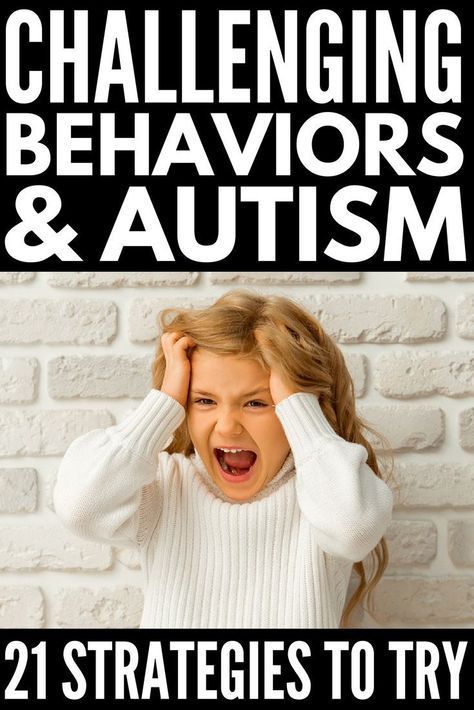 The program also includes the search for potential employers.
The program also includes the search for potential employers.
“I had a high-functioning autistic person at my last job,” says Yuri Goldman. “He was under forty. He performed the functions of a storekeeper and made a schedule for the transportation of employees. I've never been wrong, by the way. He had behavioral problems, but he was sociable. I talked. The only thing is that he waved his hands.
Anna Pupyreva dreamed that in Israel her son could get a job as a programmer in the Israeli army. A number of parents of children with ASD claim that the armed forces are recruiting people with ASD to serve in intelligence. Information about this is also available on the website of the largest national organization in the United States that protects the rights of people with autism, "Autism Speaks". However, upon arrival, it turned out that most of the professions for Zhenya Pupyrev are not available due to the fact that he does not know how to take care of himself at all.
– So I have to make sure he goes to the toilet.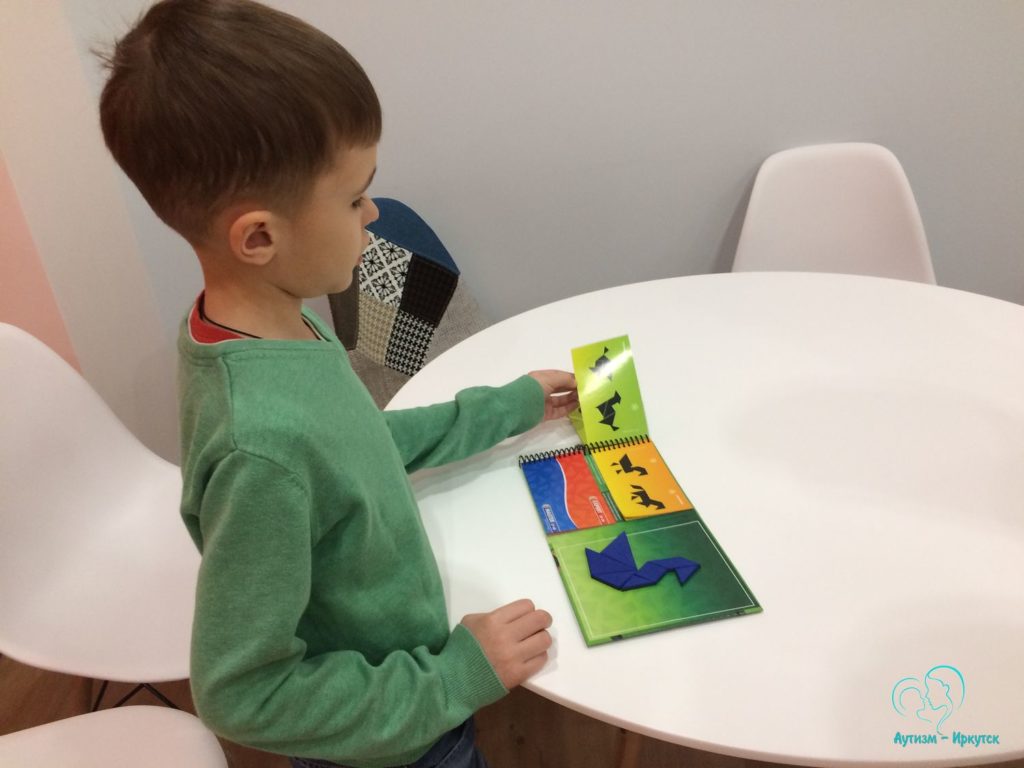 If I don’t trace, he won’t do it,” explains Anna Pupyreva. If I don't speak, he doesn't do anything. He doesn't brush his teeth, he doesn't wash his face, he can't get his food out of the fridge. He does not know when he is cold, when he is hot. He can't even take off his jacket if he gets hot. He has a violation of some areas of this control, how to say ... He cannot realize this, understand, cannot figure it out and give the appropriate signal to his brain. If you don't feed him, he won't eat.
If I don’t trace, he won’t do it,” explains Anna Pupyreva. If I don't speak, he doesn't do anything. He doesn't brush his teeth, he doesn't wash his face, he can't get his food out of the fridge. He does not know when he is cold, when he is hot. He can't even take off his jacket if he gets hot. He has a violation of some areas of this control, how to say ... He cannot realize this, understand, cannot figure it out and give the appropriate signal to his brain. If you don't feed him, he won't eat.
The mother suggests that with proper correction from childhood, the signs of the disease could be smoothed out, but Zhenya was not taught independence and life in society. Whether a correction is possible today is not clear. After the move, Zhenya learned to conduct a dialogue. He learned Hebrew and reads better than his mother, plays the piano.

